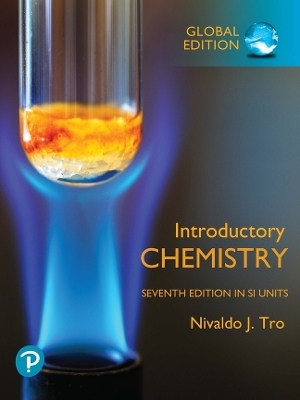
TestGen for Biochemistry
Pearson (Hersteller)
978-0-13-481482-7 (ISBN)
- Titel nicht im Sortiment
- Artikel merken
About our authors Dean R. Appling is the Lester J. Reed Professor of Biochemistry and the Associate Dean for Research and Facilities for the College of Natural Sciences at the University of Texas at Austin, where he has taught and done research for the past 29 years. Dean earned his B.S. in Biology from Texas A&M University (1977) and his Ph.D. in Biochemistry from Vanderbilt University (1981). The Appling laboratory studies the organization and regulation of metabolic pathways in eukaryotes, focusing on folate-mediated one-carbon metabolism. The lab is particularly interested in understanding how one-carbon metabolism is organized in mitochondria, as these organelles are central players in many human diseases. In addition to coauthoring Biochemistry, Fourth Edition, a textbook for majors and graduate students, Dean has published over 60 scientific papers and book chapters. As much fun as writing a textbook might be, Dean would rather be outdoors. He is an avid fisherman and hiker. Recently, Dean and his wife, Maureen, have become entranced by the birds on the Texas coast. They were introduced to bird-watching by coauthor Chris Mathews and his wife Kate–an unintended consequence of writing textbooks! Spencer J. Anthony-Cahill is a Professor in the Department of Chemistry at Western Washington University (WWU)in Bellingham, WA. Spencer earned his B.A. in chemistry from Whitman College, and his Ph.D. in bioorganic chemistry from the University of California, Berkeley. His graduate work, in the laboratory of Peter Schultz, focused on the biosynthetic incorporation of unnatural amino acids into proteins. Spencer was an NIH postdoctoral fellow in the laboratory of Bill DeGrado (then at DuPont Central Research), where he worked on de novo peptide design and the prediction of the tertiary structure of the HLH DNA-binding motif. He then worked for five years as a research scientist in the biotechnology industry, developing recombinant hemoglobin as a treatment for acute blood loss. In 1997, Spencer decided to pursue his long-standing interest in teaching and moved to WWU, where he is today. In 2012, Spencer was recognized by WWU with the Peter J. Elich Award for Excellence in Teaching. Research in the Anthony-Cahill laboratory is directed at the protein engineering and structural biology of oxygen-binding proteins. The primary focus is on circular permutation of human â-globin as a means of developing a single-chain hemoglobin with desirable therapeutic properties as a blood replacement. Outside the classroom and laboratory, Spencer is a great fan of the outdoors–especially the North Cascades and southeastern Utah, where he has often backpacked, camped, climbed, and mountain biked. He also plays electric bass (poorly) in a local blues-rock band and teaches Aikido in Bellingham. Christopher K. Mathews is Distinguished Professor Emeritus of Biochemistry at Oregon State University. He earned his B.A. in chemistry from Reed College (1958) and Ph.D. in biochemistry from the University of Washington (1962). He served on the faculties of Yale University and the University of Arizona from 1963 until 1978. When he moved to Oregon State University he became Chair of the Department of Biochemistry and Biophysics, a position he held until 2002. His major research interest is the enzymology and regulation of DNA precursor metabolism and the intracellular coordination between deoxyribonucleotide synthesis and DNA replication. From 1984 to 1985, Dr. Mathews was an Eleanor Roosevelt International Cancer Fellow at the Karolinska Institute in Stockholm, and in 1994-1995 he held the Tage Erlander Guest Professorship at Stockholm University. Dr. Mathews has published about 185 research papers, book chapters, and reviews dealing with molecular virology, metabolic regulation, nucleotide enzymology, and biochemical genetics. From 1964 until 2012 he was a principal investigator on grants from the National Institutes of Health, National Science Foundation, and the Army Research Office. He is the author of Bacteriophage Biochemistry (1971) and coeditor of Bacteriophage T4 (1983) and Structural and Organizational Aspects of Metabolic Regulation (1990). He was lead author of four editions of Biochemistry, a textbook for majors and graduate students. His teaching experience includes undergraduate, graduate, and medical school biochemistry courses. He has backpacked the mountains and floated the rivers, respectively, of Oregon and the Northwest. As an enthusiastic birder he has served as President of the Audubon Society of Corvallis and is President of the Great Basin Society, which operates the Malheur Field Station in eastern Oregon.
Biochemistry and the Language of Chemistry
The Chemical Foundation of Life: Weak Interactions in an Aqueous Environment
The Energetics of Life
Nucleic Acids
Introduction to Proteins: The Primary Level of Protein Structure
The Three-Dimensional Structure of Proteins
Protein Function and Evolution
Enzymes: Biological Catalysts
Carbohydrates: Sugars, Saccharides, Glycans
Lipids, Membranes, and Cellular Transport
Chemical Logic of Metabolism
Carbohydrate Metabolism: Glycolysis, Gluconeogenesis, Glycogen Metabolism, and the Pentose Phosphate Pathway
The Citric Acid Cycle
Electron Transport, Oxidative Phosphorylation, and Oxygen Metabolism
Photosynthesis
Lipid Metabolism
Interorgan and Intracellular Coordination of Energy Metabolism in Vertebrates
Amino Acid and Nitrogen Metabolism
Nucleotide Metabolism
Mechanisms of Signal Transduction
Genes, Genomes, and Chromosomes
DNA Replication
DNA Repair, Recombination, and Rearrangement
Transcription and Post-transcriptional Processing
Information Decoding: Translation and Post-translational Protein Processing
Regulation of Gene Expression
APPENDIX I: Answers to Selected Problems
APPENDIX ii: References
Glossary
Credits
Index
| Erscheint lt. Verlag | 4.8.2022 |
|---|---|
| Sprache | englisch |
| Themenwelt | Naturwissenschaften ► Chemie |
| ISBN-10 | 0-13-481482-7 / 0134814827 |
| ISBN-13 | 978-0-13-481482-7 / 9780134814827 |
| Zustand | Neuware |
| Informationen gemäß Produktsicherheitsverordnung (GPSR) | |
| Haben Sie eine Frage zum Produkt? |
aus dem Bereich


